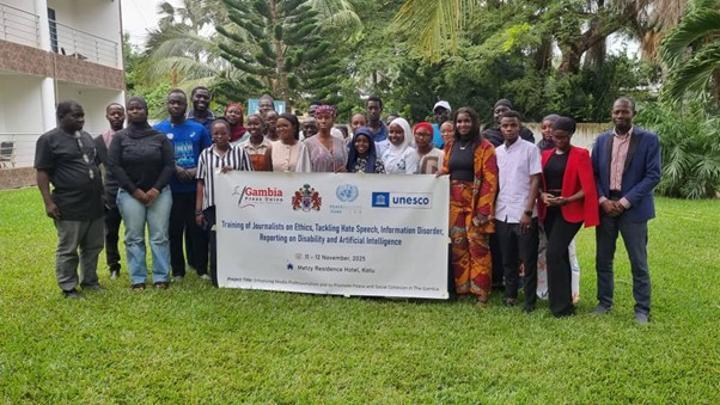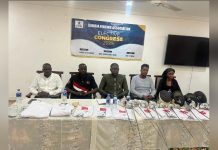Africa-Press – Gambia. The Gambia Press Union (GPU), in collaboration with UNESCO, organized a two-day training for journalists on ethics, tackling hate speech, and promoting accurate and inclusive reporting.
The event, held at Metzy Hotel Residence yesterday, aimed to enhance journalists’ capacity to report responsibly in an era marked by misinformation and technological disruption.
During the opening session, GPU Vice President, Mr Sheriff Saidykhan, highlighted the importance of the training in promoting media professionalism. He emphasized that the revised Cherno Jallow Charter for Ethics remains a fundamental guideline for journalists, outlining key principles such as accuracy, fairness, and upholding the public’s right to balanced information on matters of public interest.
Mr. Saidykhan stressed that reporting on persons with disabilities requires a higher degree of professionalism. “Disability reporting in the revised charter is intended to foster inclusivity, challenge stereotypes, and ensure accurate and respectful representation of persons with disabilities in the media,” he said. He also addressed the role of artificial intelligence (AI) in journalism, noting that while AI tools can support research, writing, and production, they also pose risks to journalistic integrity. He encouraged journalists to utilize AI responsibly to strengthen reporting standards.
Fatou Jallow, speaking on behalf of UNESCO, reinforced the media’s central role in shaping public opinion and promoting social cohesion. She underscored the challenges posed by misinformation, fake news, and unethical reporting practices, highlighting that the inclusion of disability reporting in the training aligns with UNESCO’s commitment to fair and respectful representation of persons with disabilities. “This discussion will enable journalists to critically engage with the ethical implications of technology and uphold human rights in their reporting,” she added.
Sang Mendy, Managing Director of MAJaC, further emphasized the significance of the Cherno Jallow Charter, urging journalists to treat it as a guiding document akin to the Quran or the Bible. He advocated applying a social model in reporting, focusing on societal barriers rather than individual limitations, to ensure fair and impactful coverage.
The training, facilitated in partnership with NATCOM, brought together journalists from various media houses to discuss ethical standards, combating hate speech, and integrating technological and disability considerations into their reporting. GPU officials expressed their commitment to continued collaboration with partners to strengthen media capacity and uphold ethical journalism across The Gambia.
For More News And Analysis About Gambia Follow Africa-Press






